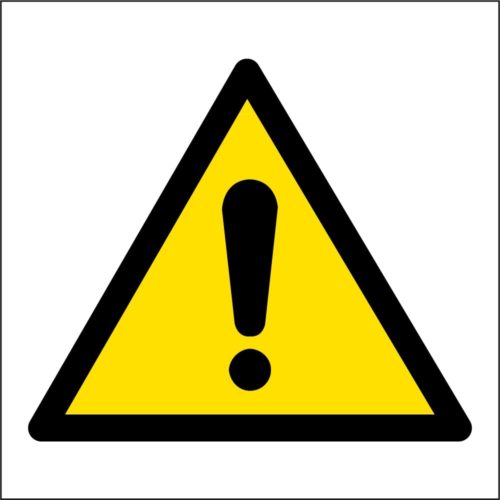Employers: Are You At Risk?

Did You Know?
Everyone knows that a successful business has to have good Health & Safety procedures in place, and the vast majority do. We have, according to HSE figures, the lowest workplace fatality rate of all the EU countries and we also fair well when it comes to work days lost through sickness and work-related ongoing health problems.
However, this doesn’t mean that any of us should become complacent. The Health and Safety at Work Etc. Act 1974 (HSAW) says that employers must make:
“arrangements for ensuring, so far as is reasonably practicable, safety and absence of risks to health in connection with the use, handling, storage and transport of articles and substances…”
and that they have a duty to provide:
“information, instruction, training and supervision as is necessary to ensure, so far as is reasonably practicable, the health and safety at work of his employees…”
So, What Does This Mean?
In a nutshell, this means that, as an employer, you have a legal duty to provide ongoing training to your employees to ensure their safety and welfare at work. This can relate to things such as manual handling, operating pieces of equipment and handling hazardous goods or substances.
The latter often catches employers out. Manual handling is standard, as is ensuring operators of equipment such as Forklifts have the relevant “licences” in place. But here’s a question for you. When did your employees last receive training on the handling of hazardous goods?
Don’t Deal With Hazardous Goods?
Are you sure?
Hazardous Goods can come in numerous forms – some of which are not at all obvious.
- Batteries, for example, contain highly corrosive acid – a hazardous substance.
- Fertilisers can act as an oxidant which, in the case of fire can fuel the flames or, in the right circumstances can even be liable to spontaneously combust.
- Paints & Preservatives are often highly flammable.
- Food & Drinks Flavouring can contain ethanol which, in sufficient volume and concentrations, is also classed as hazardous.
As you can see, it’s not just the obvious things that can pose a risk to your employees.
Drivers carrying such goods must, by law, have an ADR licence – but employees handling these goods (e.g. those working in a warehouse) should also be receiving regular training to keep them refreshed.
Think: You might not be transporting hazardous goods, but you may still need to provide training if you:
- Manufacture products using hazardous goods
- Store hazardous goods for someone else
- Are involved in the transportation process, even if you’re not collecting from the original customer or delivering to the final destination
What’s Involved?
It’s not as onerous as you might think – and it doesn’t have to be expensive. Our experienced and qualified trainers can complete an ADR / Hazardous Goods Awareness course for up to 20 people in just one day. Because there are no exam or registration fees involved, the price can be as low as £17.25 per person!
Our training comes complete with certificate and we can also provide a Photo ID card for each candidate to confirm they have completed the training.
Want To Know More?
To talk to us about your requirements, just call us on 03333 201 221 (opt. 1), email training@backlinelogistics.co.uk or complete the form below.
ADR Training Courses
Register your interest for any of our available training courses or request alternate dates. We will contact you to confirm your place or discuss further options.
